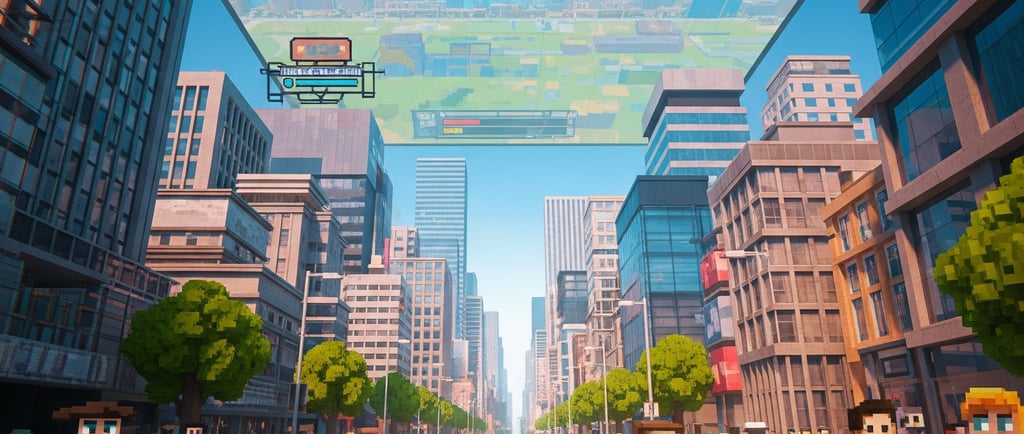Are We Living in a Video Game? Why Billionaires and Philosophers Are Obsessed With Simulation Theory
Imagine waking up and realizing that everything around you—from the people you meet to the colors you see—is all part of a vast, computer-generated reality, a simulation designed by some advanced entity. This idea, known as simulation theory, has gone from fringe philosophy to mainstream fascination, captivating billionaires, scientists, and philosophers alike. But why are so many people obsessed with the possibility that our universe is just an ultra-real video game?
NON-STOIC PHILOSOPHIES
8/24/20252 min read


What Is Simulation Theory?
Simulation theory proposes that our reality is not the "base" reality but a highly detailed simulation, akin to an incredibly advanced video game. According to this hypothesis, everything we experience might be code running on a powerful computer system—possibly created by a future civilization or an entity far beyond our understanding.
This theory questions the very nature of existence, suggesting that what we perceive as real is a constructed environment, designed with its own laws, rules, and interactions.
Why Are Philosophers Fascinated?
Philosophers see simulation theory as a modern version of ancient questions about reality and perception. The idea echoes Plato’s Allegory of the Cave, where prisoners mistake shadows for reality, highlighting the gap between appearance and truth.
Exploring whether we live in a simulation challenges assumptions about consciousness, free will, and the essence of being. If everything is coded, what does that mean for personal identity and moral responsibility? Philosophers debate how to define “real” and whether simulated beings could possess consciousness or rights.
Why Do Billionaires Take It Seriously?
Some of the world’s most prominent tech visionaries believe simulation theory is more than speculation. For them, the rapid growth in computing power and advances in virtual reality suggest that future civilizations could create simulations indistinguishable from “true” reality.
Entrepreneurs investing in artificial intelligence, quantum computing, and immersive technology imagine that we might already be inside a “programmed” world. This belief influences their approach to technology's development and fuels speculation about humanity’s ultimate destiny.
The Arguments That Fuel Belief
Several interesting points keep simulation theory in the spotlight:
Fine-tuning of the universe: The physical constants in our universe are remarkably precise to support life. Some argue this precision reflects a designed environment rather than chance.
Technological progress: Computer simulations are becoming incredibly sophisticated, suggesting that highly detailed “ancestor simulations” could soon be possible.
Perceived glitches and anomalies: People occasionally report strange experiences or inconsistencies in reality that some interpret as “bugs” or glitches in the simulation.
Philosophical probability: Some argue it’s statistically more likely that we exist in one of many possible simulated worlds rather than the original “real” world.
What Does This Mean for Us?
Whether we are in a simulation or not, the theory invites us to rethink existence and reality. It raises questions about purpose, free will, and how we understand the universe.
If life is a simulation, does that change how we value our experiences? Does it make morality relative or fixed by the “programmer”? Could understanding the “code” unlock deeper truths and abilities? These open-ended questions drive much of the continuing fascination.
Final Thoughts
Living in a simulation might sound like science fiction—but to many billionaires and philosophers, it’s a serious hypothesis worth exploring. As technology surges forward and our understanding of consciousness deepens, simulation theory encourages us to question the very foundations of reality and our place within it.
In a way, it’s a philosophical and scientific quest to uncover whether life is truly what it seems—or if we are all players in the most advanced game ever created.
Waste no more time arguing about what a good man should be. Be one - Marcus Aurelius
We suffer more often in imagination than in reality - Seneca
Wealth consists not in having great possessions, but in having few wants - Epictetus
